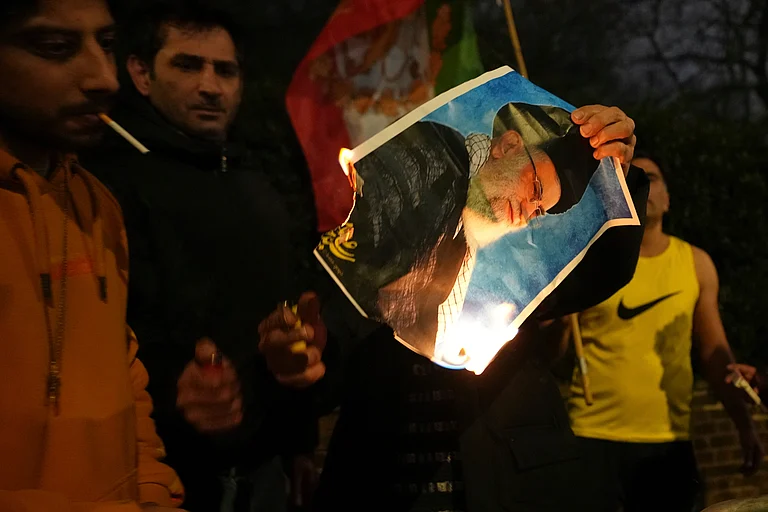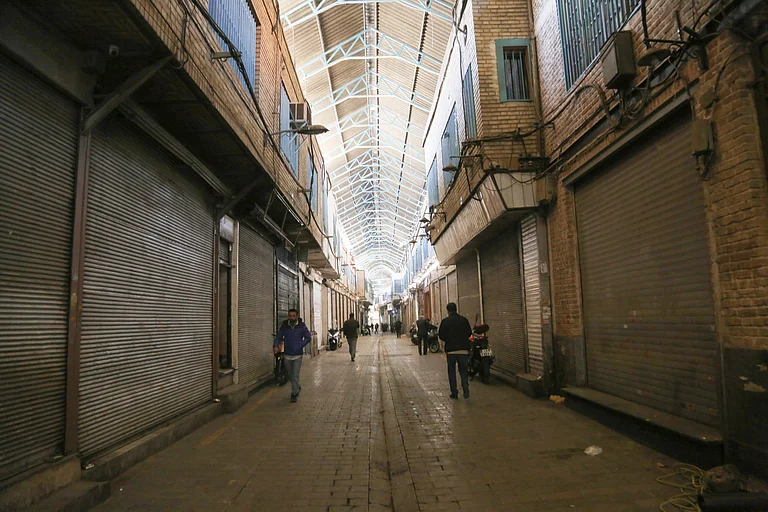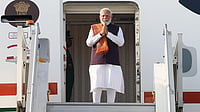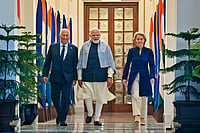The death of Hezbollah supremo Hassan Nasrallah along with many of the top leaders of the group in Israeli air strikes on Friday is a deadly blow to the movement in Lebanon as well as Iran. Nasrallah was in a meeting with his top commander when Israel struck. It will make Israeli Prime Minister Benjamin Netanyahu a hero and resurrect his image domestically. However, Israel’s air strikes in Lebanon are continuing in an effort to destroy Hezbollah facilities across the country. This is Israel’s opportunity to hit hard at a time when the Hezbollah's communication systems are down following the pager and walkie-talkie attack.
Nasrallah’s elimination will not just effect Lebanon and the war in Gaza but the geo-politics of West Asia and beyond. This, however, is not the end of Hezbollah, as it not just a fighting force but one committed to the ideology of political Islam. The movement will continue, but what shape and turn it takes remains to be seen. With not just Nasrallah but many of the top commanders out of the picture, it will take a long time for the Hezbollah to regroup and plan its future course. Analysts of the region believe that someone would eventually emerge to take over the leadership. Nasrallah took up the mantle after Sayyed Abbas Musawi, an equally charismatic leader, was assassinated. But for the moment nothing is clear.
For Iran, the country that has backed Hezbollah and Hamas, the killing of Hasan Nasrallah could not have come at a worse time. Nasrallah was close to the Iranian leadership and was installed as Hezbollah chief by the Iranian Revolutionary Guard in 1992. As a devout practicing Shia, his spiritual connections with Supreme Leader Ali Khamenei and the Iranian clergy was strong. He helped spread the Iranian version of political Islam across the region. He was the man who co-ordinated with the resistance forces in Syria, Iraq and Gaza. To many Lebanese who supported Hezbollah, he was a father figure. Those opposed to Hezbollah in Lebanon hated him and believed he was responsible for their country’s sad plight.
What will be Iran’s next move is the question everyone is asking. Will Iran join the war as some predict? Iran has been humiliated by Israel several times in the past. Iranian nuclear scientists have been killed inside the country by suspected Israeli agents. The Iranian consulate in Damascus was targeted to take out a senior commander of Iran’s elite Revolutionary Guard. To add insult to injury, Ismail Haniyeh was assassinated while in Tehran and staying at a government guest house. He was in Iran as a honoured guest to attend the inauguration of President Masoud Pezeshkian. Besides making strong statements, Iran did nothing. Decades of sanctions have weakened Iran's military might. The economic hardships and a restive population have not made things easier. Iran may make thundering statements but is unlikely to be drawn into a war with Israel. The astute Iranian leadership is well aware that this is what both Israel, the US and its Sunni neighbours want. It would give Israel the excuse to hit Iran’s nuclear programme, which is at a critical stage. Saudi Arabia and the UAE have been playing footsie with Israel for nearly a decade. The UAE has established diplomatic ties with Israel and Saudi Arabia was to follow but for Israel’s war on Gaza. Neither Israel nor the Arab Sunni states want Iran to go nuclear. It is early days yet and Iran will mull over its options keeping its national interests in mind.
The question now arises, what next for Benjamin Netanyahu and Israel. What is the endgame?
Many in the region believe that Israel wants to occupy Gaza and drive Palestinians out to the Sinai desert in Egypt. This has been the Zionist dream since 1947 and Netanyahu and his hardline supporters think that the time is just right to push for the Zionist dream of a greater Israel promised in the Bible.
“Israel’s aim in the war against Gaza is clear. It has just one goal in mind, and that is ethnic cleansing. Since the foundation of Israel, it has always dreamt of having a state for Jews only. But they were not able to accomplish this because there was a large majority of Palestinians living in the land given to Israel. So they implemented a gradual step-by-step plan to force the Palestinian population out of their homeland. This happened in 1948 and then in 1967 and it has been happening even today. Conditions have become so tough for the Palestinians in the occupied territory that young people have been forced to look for opportunities outside Palestine. So this is another step to force the Palestinians outside Gaza,” says Istanbul-based Mohammad Makram Balawi, the Director General of the League of Parliamentarians for Al-Quds, a pro-Palestinian body. “We are also witnessing the same process in the West Bank, where Israel is building more and more settlements and grabbing more and more land. They wish to dispossess Palestinians and finally force them out to the Sinai desert in Egypt,” he adds.



























